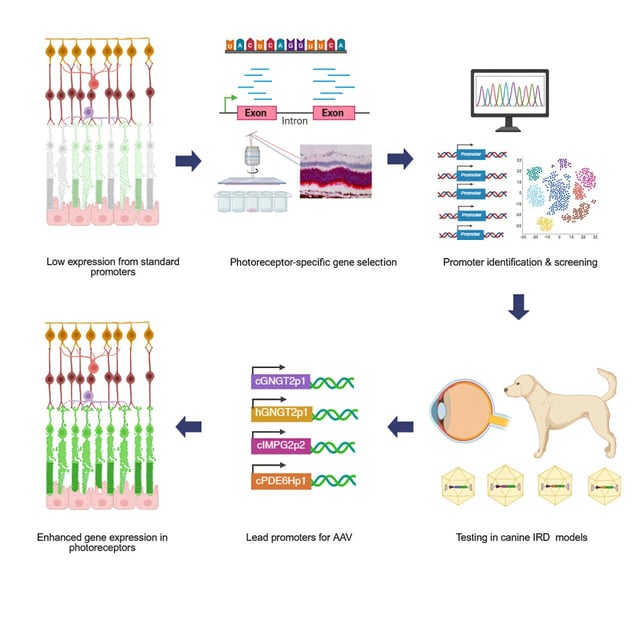Overview
- Researchers at the University of Pennsylvania have created four novel photoreceptor-specific promoters optimized for mid-to-late stage inherited retinal degenerations.
- The new promoters outperform the widely used GRK1 promoter, maintaining strong and targeted gene expression even after significant photoreceptor loss.
- Promoters derived from the GNGT2 gene demonstrated robust activity in both rod and cone cells, with sizes under 850 base pairs, making them ideal for AAV vector packaging.
- The promoters were identified through transcriptomic analysis, computational modeling, and in vivo testing in canine models that closely mimic human retinal diseases.
- A provisional patent has been filed for the technology, paving the way for future clinical and veterinary applications to address advanced retinal degeneration treatment gaps.

